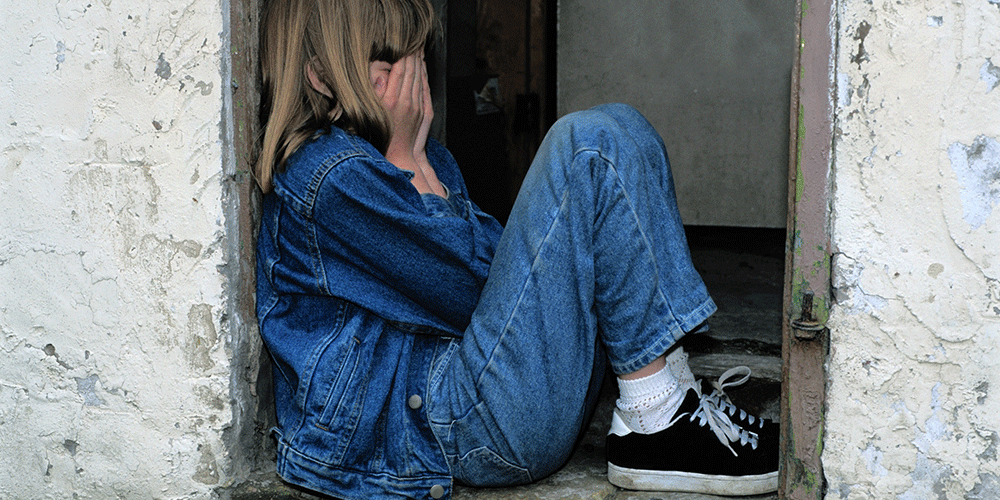Chapters
1. How do you deal with a difficult teenager?
2. What is the hardest age for a teenager?
3. Why do teenagers become difficult?
4. How do I help my teenager who doesn't want help?
5. How do you discipline a defiant teenager?
We were all teenagers once and we can all relate. However, for some, this period is the hardest part about being a parent. Some parents sail through it, but the majority of us worry about the best way to cope with this stage in our children’s lives and have to face the fact that we may have a difficult teenager on our hands! Read on to see what we suggest as you navigate your way through this time in your teenager’s life.
How do you deal with a difficult teenager?
In modern life, parents have a lot that they feel guilty about. This is even more so the case when you have a difficult teenager.
You may often find yourself asking the following questions to account for your teen’s behaviour: “Is it because I’m a part-time parent?” or “Is it because I’m a single parent? Is it because I work too much?”
The first thing to do is stop looking at yourself and start looking at them. However much they test your patience and push the boundaries, try not to get angry 😡. Listen to them, be there for them, let them make mistakes. It’s how we all learn, isn’t it?
Remember, your teenagers are still kids and they are still learning so try to lead by example. You can’t expect them to apologise if you never apologise to them! And you can’t expect them to spend time off their mobile phones if you don’t.
What is the hardest age for a teenager?
The most challenging age in terms of parenting is when the child is around the age of 14, or mid-adolescence.
This is the age when they are less likely to respond well to punishment and will become more embarrassed by things. It will probably be over something you’ve done. Don’t be offended, just try to limit these situations. We know it’s hard! 😊
This is also the time when they’re more likely to take risks. Research shows that they will take more risks when they are with their friends. Try to teach them what a good friend should be: fun, considerate, supportive and non-problematic. If there are always issues with a friendship, it’s probably not a good one! 😟
Why do teenagers become difficult?
The first thing to do is to understand that teenagers think differently from their parents. In fact, the frontal cortex of their brain isn’t yet fully formed.
This is the part of the brain which helps us make decisions, manage our emotions, and control our behaviour. So, part of it is biological.
The other reason might be social. What external factors are causing them to be difficult? Are they being bullied? Might they have anxiety or depression or other mental health issues? Do they have good role models and people they can confide in? Are they eating well 😋, sleeping well 🛌and exercising regularly?🏃
How do I help my teenager who doesn’t want help?
We think the hardest part about having a difficult teen is when they don’t want your help.
- Try to be patient and let them know that when they are ready to talk, you are there for them. Keep lines of communication open, even if it’s just one-way.
- Give them information about resources they can use in case they want to reach out to someone else. There are many mental health services and bullying helplines if these are an issue.
- Model good friendships and relationships. Keep an eye on the people they hang around with in and outside of school.
- Don’t keep your own emotions hidden. That’s why they might be hiding theirs from you!
How do you discipline a defiant teenager?
There are many types of parents out there and many ways to discipline your teen. We think that being too strict with a difficult teenager could lead to frustration due to a lack of freedom. This may cause them to rebel and break down any boundaries that are put in their way.
That said, being too laid-back regarding punishment could lead to teens being ill-prepared for the real world where rules are commonplace. It’s easier to learn this as a teenager than when they are older when the consequences may be more serious.
If you have a difficult teen, you should remember the key to discipline is guiding them rather than punishing them. With clear and consistent limits, discussed with your teen, it will be seen as a mutual agreement where they feel involved. If these agreed limits are ignored then there will be consequences. This is how the world works after all. We’re not saying it’s easy, but it’s a start. 💪
The most rewarding thing about being a parent is maintaining a good relationship with your children. Despite what you think, it’s hard for them too, especially in an age of social media and a global pandemic! Whenever things get too much, take a step back and breathe. You’re doing better than you think! 😀









